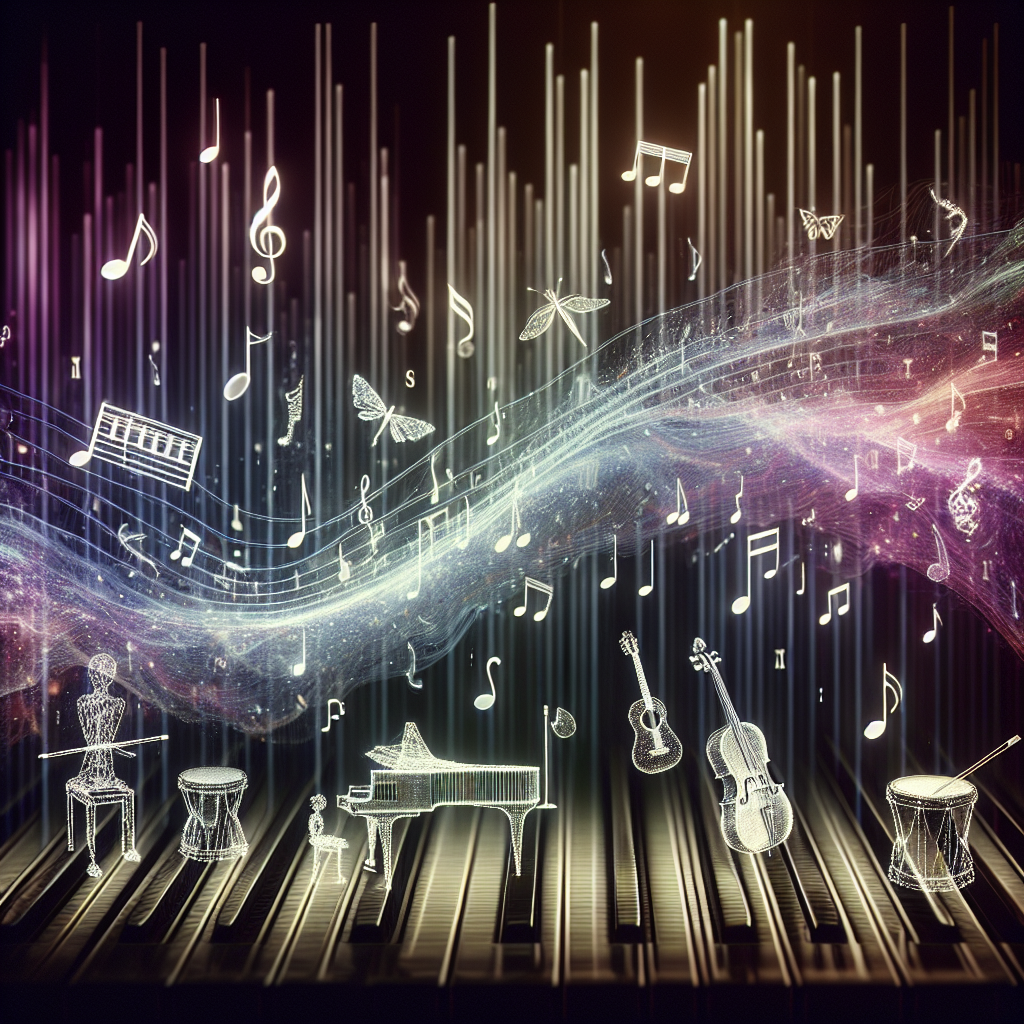Exploring the Harmonic Convergence of Voice and AI: Musicy's Speech to Music Technology
The evolution of artificial intelligence (AI) continues to amaze, as it merges with various creative domains, particularly music production. Musicy's speech to music technology is a testament to AI's expanding capabilities, offering artists and enthusiasts a novel way to transform vocal notes into a symphony of instruments. This detailed analysis dives deep into the potential, challenges, and the future of voice-based music creation through AI lenses.
A Symphony from Speech: The AI Music Assistant
Innovation in AI has found a melodious niche in Musicy's speech to music feature. At its core, the technology invites users to sing or vocalize into a microphone, upon which the AI converts these vocal inputs into any desired musical instrument's sound. This advancement not only provides creators with a new level of musical expression but also democratizes music production, allowing those without traditional instrumental skills to compose and conceptualize music in unprecedented ways.
The User Experience and First Impressions
Matthew Bell of the Matt vidpro AI YouTube channel provides an enthusiast's perspective, experimenting with the technology firsthand. His experience reflects both the initial awe at the capability of the AI and the nuanced discovery that perfecting its use requires practice and perhaps a musical ear. The platform’s ease of use, with options to record in-browser or upload audio files, adds a layer of accessibility that fosters instant creative exploration.
Technical Capabilities and Instrumental Range
Musicy boasts a variety of instruments beyond the typical guitar or piano. It includes exotic sounds like the duduk, a range of percussions, and even cinematic effects. This diverse palette indeed broadens the horizon for music creators. However, Bell's experiences with different instruments highlight that the AI's conversion success may vary depending on the complexity of the instrument and the user’s vocal mimicry.
Real-Time Conversion and Quality of Output
A notable point of curiosity is whether the AI operates in real-time. Presently, it does not, though it's plausible to foresee such advancement in the foreseeable future. Quality too is a variable factor; the platform offers different tiers, with the premium plan evidently providing superior output and reduced generation time.
The Art of Fine-Tuning and Voice Suitability
The process isn't without challenges. Bell's trial and error with the technology suggest that fine-tuning, such as adjusting pitch, can enhance the outcome significantly. Certain voices and the way they resonate might be more conducive to the AI’s algorithms, indicating that personalization and model training could play a role in future updates.
Future Harmonies: The Potential of AI in Music
The current landscape of AI in music creation is ripe with potential. Musicy's offering hints at a world where AI could become integral to personal and professional music production. Considering the continual refinement of AI models and algorithms, one might see more adaptive and responsive systems that can cater to a broader range of voices and produce even more accurate musical translations.
Musicy Beyond Speech to Music
The platform also explores other facets of AI-driven music creation, such as text to music generation and parody vocals, which mimic well-known characters. These additional features open avenues for experimentation that go beyond traditional music production, potentially giving rise to new genres and styles birthed from AI's capabilities.
Conclusion: A Crescendo in the Making
Musicy’s speech to music technology is a glimpse into an AI-powered future where the boundaries of music creation are significantly expanded. Matthew Bell's exploration underscores both the exhilarating possibilities and the current limitations. As AI continues to evolve, one might expect to see more intuitive, real-time systems that cater to a wider spectrum of vocal talents and musical preferences. Musicy has undoubtedly set the stage for an exciting convergence of AI and music, with each update potentially unlocking new creative possibilities.
For those interested in the broader context surrounding AI applications in music, websites like Music Tech and AIVA provide valuable insights into AI's role in music composition and theory.
As for Musicy's technology, it remains a work in progress, a fascinating one at that. Whether for professional composers, hobbyists, or those simply curious about the fusion of technology and art, Musicy offers a compelling platform worth tuning into. As AI fine-tunes its understanding of our melodic expressions, it may not be long before we witness a fully integrated AI music assistant, harmonizing with the human touch to compose the unheard melodies of tomorrow.
Related News
- Unraveling the Symphony of AI-Generated Music: A Deep Dive into the Trends Shaping Our Musical Future
- Navigating the Symphony of AI: A Deep Dive Into the Future of Music Generation
- The Symphony of AI: Crafting Music with the Masters - Loudly and sunno AI
- The Sonic Revolution: Unpacking 11 Labs' Trailblazing AI Music Model
- Ushering In the New Era of AI Music Generation: A Deep Dive into UdiO AI
